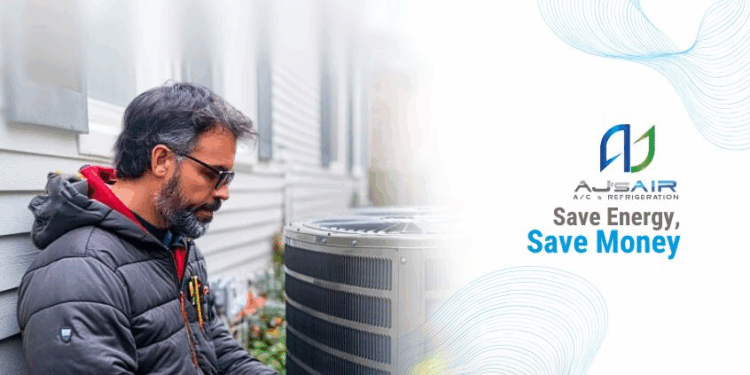
Exploring the importance of regular air conditioner tune-ups and how they can ultimately save you money is crucial in maintaining an efficient cooling system. By understanding the benefits of these tune-ups, you'll see how they contribute to preventing costly repairs and improving energy efficiency.
Let's delve into the details of why regular air conditioner tune-ups are a smart investment for your wallet and your comfort.
Importance of Regular Air Conditioner Tune-Ups

Regular air conditioner tune-ups are essential in maintaining the efficiency and longevity of your cooling system. By scheduling routine maintenance, you can benefit in various ways:
- Preventing Costly Repairs: Regular tune-ups can help identify and address minor issues before they escalate into major problems, saving you from expensive repair bills.
- Improving Energy Efficiency: A well-maintained air conditioner operates more efficiently, leading to lower energy consumption and reduced utility bills.
- Extending Lifespan: Proper maintenance can prolong the lifespan of your air conditioner, delaying the need for a costly replacement.
- Enhancing Indoor Air Quality: Clean filters and coils result in better air circulation and improved air quality inside your home.
Components of an Air Conditioner Tune-Up
Regular air conditioner tune-ups consist of various essential components that are crucial for the optimal functioning of your cooling system. Let's delve into the key tasks involved in a professional tune-up to ensure your air conditioner operates efficiently.
Cleaning and Inspecting Various Parts
During a tune-up, HVAC technicians will thoroughly clean and inspect different components of your air conditioner. This includes cleaning or replacing air filters, which can significantly impact the system's efficiency. They will also inspect the evaporator and condenser coils for any dirt buildup, as well as check the blower motor and fan blades for proper operation.
Checking Refrigerant Levels
One of the vital tasks during a tune-up is checking the refrigerant levels in your air conditioning system. Improper refrigerant levels can lead to reduced cooling capacity and higher energy consumption. HVAC technicians will ensure that the refrigerant is at the correct level to maintain peak performance.
Inspecting System Controls
Another crucial aspect of a tune-up is inspecting the system controls of your air conditioner. This involves checking the thermostat settings, electrical connections, and overall system operation. Ensuring that the system controls are functioning correctly helps prevent breakdowns and ensures efficient cooling throughout the summer months.
Long-Term Cost Savings from Regular Tune-Ups

Regular air conditioner tune-ups can lead to significant long-term cost savings compared to dealing with breakdowns and repairs
Extended Lifespan of Air Conditioner
Regular maintenance can help extend the lifespan of an air conditioner by ensuring that all components are working efficiently. When the system is properly maintained, it is less likely to experience major malfunctions that could lead to premature failure. This means that homeowners can delay the need for a costly replacement, saving a substantial amount of money in the long run.
Real-Life Cost Savings Examples
Numerous case studies and real-life examples highlight the significant cost savings attributed to regular air conditioner tune-ups. For instance, a homeowner who invests in annual tune-ups and preventative maintenance may avoid a major breakdown that could cost thousands of dollars to repair or replace.
By proactively maintaining their air conditioner, they not only save money on repairs but also benefit from lower energy bills due to increased efficiency.Overall, the long-term cost savings from regular air conditioner tune-ups are undeniable, making it a wise investment for homeowners looking to protect their HVAC system and their wallet.
DIY Maintenance Tips to Supplement Professional Tune-Ups
Regular maintenance is key to keeping your air conditioner running smoothly. While professional tune-ups are essential, there are simple tasks homeowners can perform to supplement these visits and ensure optimal performance of their AC unit.
Importance of Changing Air Filters Regularly
One of the easiest and most important DIY maintenance tasks is changing the air filters regularly. Clogged or dirty filters can restrict airflow, making your AC work harder and less efficiently. This can lead to higher energy bills and potential damage to the system.
- Check your filters monthly and replace them every 1-3 months, depending on usage.
- Use high-efficiency filters to improve air quality and system efficiency.
- Dirty filters can also lead to poor indoor air quality, affecting your health and comfort.
Keeping the Outdoor Unit Clean
Another important DIY task is maintaining the cleanliness of the outdoor unit. Debris, leaves, and dirt can accumulate around the unit, affecting its efficiency and performance.
- Regularly inspect the outdoor unit and clear any debris or vegetation around it.
- Use a hose to gently clean the coils and fins, removing dirt and grime that can hinder airflow.
- Ensure proper clearance around the unit for optimal airflow and heat dissipation.
Final Conclusion
In conclusion, prioritizing regular air conditioner tune-ups is a proactive approach that not only saves you money in the long run but also ensures your cooling system operates at its best. By implementing these maintenance practices, you can enjoy a more efficient and cost-effective cooling experience.
Answers to Common Questions
How often should I schedule air conditioner tune-ups?
It is recommended to schedule air conditioner tune-ups at least once a year to ensure optimal performance and efficiency.
Can I perform air conditioner tune-ups on my own?
While some maintenance tasks can be done by homeowners, it is advisable to have a professional technician conduct a thorough tune-up for better results.
Do air conditioner tune-ups really save money?
Yes, regular tune-ups can save you money by preventing major repairs, improving efficiency, and extending the lifespan of your air conditioner.













